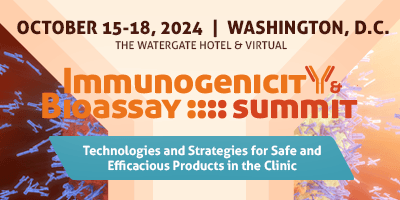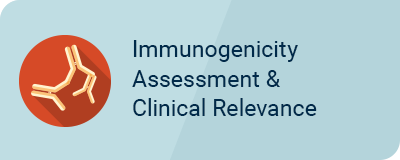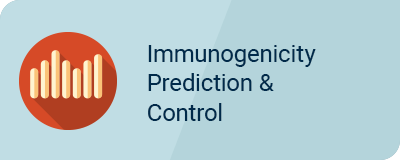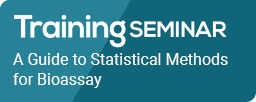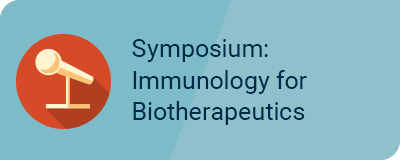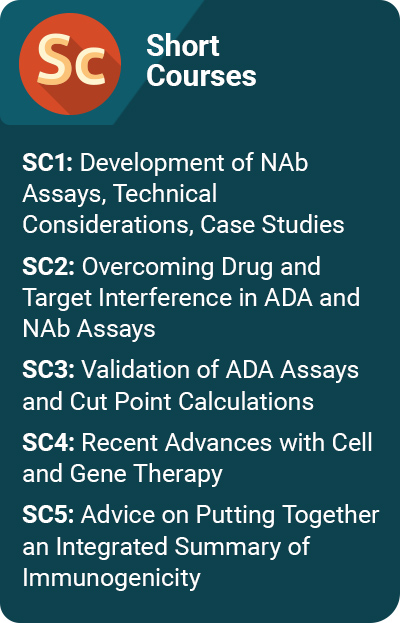2024年短期课程* (仅限线下面对面形式)
* *需单独申请。
本会议的短期课程旨在具有教育性、互动性,并提供有关特定领域的深入资讯,且可随时提问和回答。这个短期课程除了为初学者和想要了解更多资讯的人介绍该领域概论,更有在会议发表期间因时间限制而无法涵括的更技术方面的阐述。我们的讲师精选自工业界和学术界,多数皆是该领域公认的权威,拥有丰富的指导经验。
2024年10月15日(二) 9:00 - 12:00 pm
SC1: Development of NAb Assays, Technical Considerations, Case Studies
Development of NAb Assays, Technical Considerations, Case Studies
Lynn Kamen, PhD, Scientific Officer, Executive Director, BioAgilytix
Jim McNally, PhD, CSO, BioAgilytix
Topics to be Covered Include:
- Current regulatory guidance
- NAb assay strategy - Immunogenicity risk assessment
- Special focus on assay format selection - Mechanism of action-based approach
- Validation and implementation of NAb assays
- Relevant case studies
INSTRUCTOR BIOGRAPHIES:
 Lynn Kamen, PhD, Scientific Officer, Executive Director, BioAgilytix
Lynn Kamen, PhD, Scientific Officer, Executive Director, BioAgilytix
 Jim McNally, PhD, CSO, BioAgilytix
Jim McNally, PhD, CSO, BioAgilytix
2024年10月15日(二) 2:00 - 5:00 pm
SC2: Overcoming Drug and Target Interference in ADA and NAb Assays
Overcoming Drug and Target Interference in ADA and NAb Assays
Lynn Kamen, PhD, Scientific Officer, Executive Director, BioAgilytix
Weifeng Xu, PhD, Director, Bioanalytical, Merck
Topics to be Covered Include:
- Types of Interferences:
> Soluble Target
> Drug
> Matrix
- Immunogenicity Assay Designs and Susceptibility to Interference
- Competitive Ligand-Binding Immunoassays Bridging Immunoassays
- Cell-Based Immunoassays Mitigation Strategies
- Sample Pre-Treatment BEADACEBEHD
- Heat Inactivation
- Case Studies
INSTRUCTOR BIOGRAPHIES:
 Lynn Kamen, PhD, Scientific Officer, Executive Director, BioAgilytix
Lynn Kamen, PhD, Scientific Officer, Executive Director, BioAgilytix
 Weifeng Xu, PhD, Director, Bioanalytical, Merck
Weifeng Xu, PhD, Director, Bioanalytical, Merck
2024年10月15日(二) 5:30 - 8:30 pm
SC3: Validation of ADA Assays and Cut Point Calculations
Validation of ADA Assays and Cut-Point Calculations
Kavitha Akula, PhD, Principal Scientist, Bristol Myers Squibb Co.
Krupa Ramani, Senior Scientist, Janssen
Jiangbo Tang, PhD, Senior Scientist, Bristol Myers Squibb Co.
Topics to Be Covered Include:
- Tiered testing strategy: Basic issues regarding screening, confirmatory, and titer assays
- ADA assay validation strategies: Experimental design to execute a validation
- Step-wise process for calculating different types of cut-points
- Practical challenges for the in-study implementation of cut-points
- Case studies related to the implementation of validation and study-specific cut-points
INSTRUCTOR BIOGRAPHIES:
 Kavitha Akula, PhD, Principal Scientist, Bristol Myers Squibb Co.
Kavitha Akula, PhD, Principal Scientist, Bristol Myers Squibb Co.
 Jiangbo Tang, PhD, Senior Scientist, Bristol Myers Squibb Co.
Jiangbo Tang, PhD, Senior Scientist, Bristol Myers Squibb Co.
SC4: Recent Advances with Cell and Gene Therapy
Recent Advances with Cell and Gene Therapy
Jim McNally, PhD, CSO, BioAgilytix
Topics to be Covered Include:
- Immunogenicity assessment of cell therapies
- Examining recent developments with CAR T cells and edited stem cells
- Immunogenicity assessment of gene therapies
- Recent data on pre-existing reactivity for AAV Advances with redosing
- Application of current guidance to novel modalities
- What is your product, the vector, the expressed product?
INSTRUCTOR BIOGRAPHIES:
 Jim McNally, PhD, CSO, BioAgilytix
Jim McNally, PhD, CSO, BioAgilytix
2024年10月17日(四) 6:00 - 9:00 pm
SC5: Advice on Putting Together an Integrated Summary of Immunogenicity
Advice on Putting Together an Integrated Summary of Immunogenicity
Bonnie Rup, PhD, Biotechnology Consultant, Bonnie Rup Consulting
Background
Information relevant to the assessment of the impact of undesirable immunogenicity of therapeutic proteins on overall clinical benefit vs. risk balance is distributed across many different sections of the regulatory dossier. This has made it difficult for regulatory reviewers to locate the requisite data. Moreover, essential background information to describe the intrinsic immunogenic potential of the molecule, and how extrinsic factors (product quality, patient variables, dose regimen, etc.) might interact to influence clinical manifestations, is often missing. Although there might be valid reasons for applying a particular strategy for evaluating immunogenicity, the sponsor’s rationale is often not clearly explained. For this reason, recently issued FDA and EMA guidance has recommended submitting integrated summary documents in regulatory submissions with the objective of collating the essential information required by the regulatory assessor.
Who Should Attend?
This short course is relevant to anyone who is involved in generating and compiling the input data for immunogenicity--related sections of regulatory dossiers, including CMC, bioanalytical, non--clinical, clinical, and regulatory specialists.
Topics to be Covered Include:
- Regulatory expectations
- The iterative process
- Risk assessment and study planning
- Identifying relevant information for the ISI
- ISI structure, level of detail and analysis, suggestions for presenting the data
INSTRUCTOR BIOGRAPHIES:
 Bonnie Rup, PhD, Biotechnology Consultant, Bonnie Rup Consulting
Bonnie Rup, PhD, Biotechnology Consultant, Bonnie Rup Consulting
* 活动内容有可能不事先告知作更动及调整。
CONFERENCE PROGRAMS
